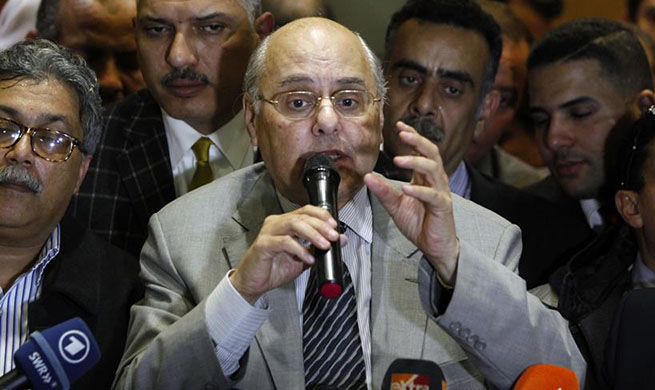MONTREAL, Jan. 29 (Xinhua) -- The just-concluded sixth round of North American Free Trade Agreement (NAFTA) talks saw some progress with a new chapter on anti-corruption.
However, trade frictions remain between the United States and Canada, posing great challenges for future NAFTA negotiations among the United States, Canada and Mexico.
At a joint press conference following the talks on Monday, representatives of the three sides acknowledged that some progress had been made, yet tough challenges still lie ahead.
Mexican Secretary of Economy Ildefonso Guajardo Villarreal struck a positive tone, saying that progress was made on anti-corruption, telecommunications and trade facilitation among others, despite "substantial challenges" for future NAFTA talks.
"For the next round, we still have substantial challenges to overcome. Yet the progress made so far put us on the right track to create landing zones to conclude the negotiation soon," he said.
However, divergences remain between Washington and Ottawa. Ahead of the latest round of talks, Canada filed a trade complaint at the World Trade Center last month, citing U.S. wrongdoings it alleged have affected not only Canada, but also many other trading partners including China, India, Brazil and the European Union. The wrongdoings include the anti-dumping and anti-subsidy duties adopted by the United States.
"Canadians do not view free trade as zero sum game in which one side must lose in order for the other to win," said Canadian Foreign Affairs Minister Chrystia Freeland at the press conference.
U.S. Trade Representative Robert Lighthizer bashed the trade complaint as "unprecedented" and a "massive attack on all of our trade laws."
During the talks, Canada also put forward two proposals to address trade disputes with the United States, including a rules-of-origin pitch to meet the U.S. demands for more North American content in autos, up from the current 62.5 percent to 85 percent, and for 50-percent U.S. content used in North American-built vehicles.
However, Lighthizer dismissed the proposal, saying it "may actually lead to less regional content than we have now, fewer jobs in the United States, Canada and most likely Mexico."
For her part, Freeland defended Canada's solution, saying that she is worried by the "dismantling of the cross-border supply chains that have made our auto industry the envy of the world."
Despite friction and differences, all the three countries look forward to more progress in the next round of talks. While saying the talks were still moving slowly on U.S. priorities, Lighthizer acknowledged that this round of negotiations was "a step forward," and that the United States would "work very hard" to seek "major breakthroughs" from now on.
The next round of NAFTA talks is set to be held in Mexico in late February before moving to the United States.
(Li Baodong in Ottawa also contributed to the report.)
















